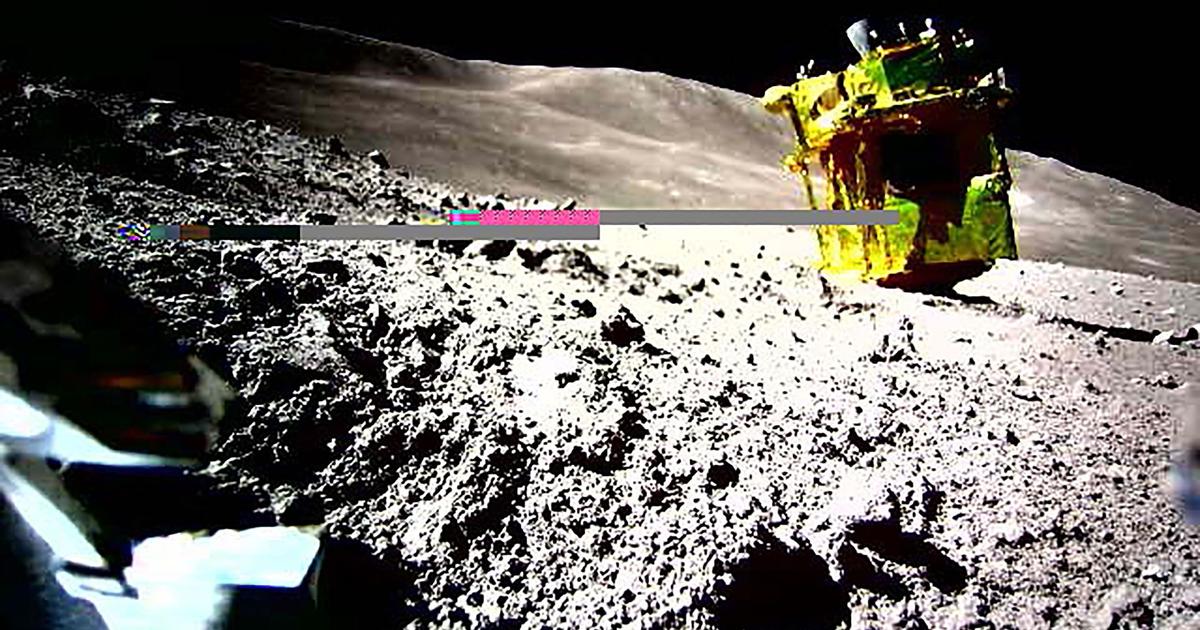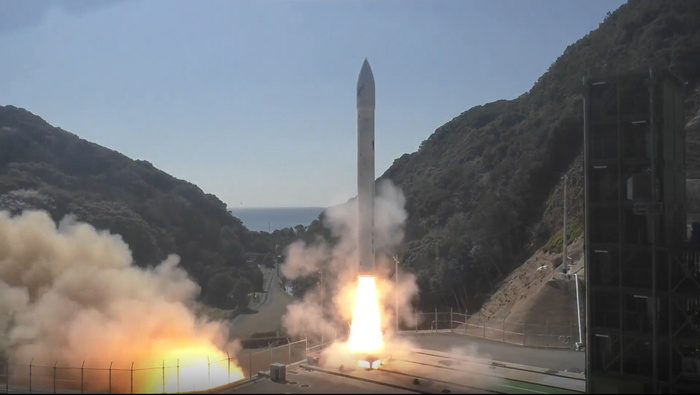So far there were the Americans, the Soviets, the Europeans, the Indians and, since yesterday, the Emiratis.
By placing its Tianwen-1 probe in orbit around Mars on Wednesday, the Chinese are joining a fairly select club: those who have managed to gravitate around the red star.
The insertion into orbit, which took place at around 1:52 p.m. KST, was confirmed shortly after by state media CGTN, citing the Chinese space agency (CNSA).
This is the first important step before a landing planned between the end of April and May.
China aims to do what only the United States has managed to achieve so far: operate a machine on Mars.
Often described as a “prestige mission”, Tianwen-1 should above all make it possible to test whether the Chinese equipment is working well, before a second mission dedicated to a return of samples to Earth around 2030. But the CNSA does not rule out scientific discoveries by then, since Tianwen-1 carries many instruments, especially dedicated to the study of the soil and the atmosphere.
“For its planetary programs, China places the emphasis above all on technology,” says Philippe Coué, independent researcher specializing in Chinese space projects.
What I observe is that when a mission works well, they take the opportunity to do science, it is not the other way around.
A bit like in the days of Apollo: we try to make vehicles and equipment extremely reliable.
The bonus will be to do science.
"
"Catch up"
Beijing's last attempt to approach Mars had not been very successful.
Launched in 2011, their Yinghuo-1 satellite was to study its atmosphere.
But the Russian probe Phobos-Grunt which carried it failed to reach its transit orbit and the mission ended in failure.
AT
Conversely, Tianwen-1 was managed entirely autonomously.
“With the lunar material, they developed everything necessary to make the planetary, continues Philippe Coué.
There is a will of China to master absolutely all space techniques.
"
What to compete with the United States, as on the Moon?
“They are extremely lagging behind, recognizes the author of
Shenzhou, the Chinese in space
(L'Esprit du temps).
They got interested in planetary exploration late but they are moving very quickly.
"While American programs are subject to political reversals," China has time with it ":" They at least have the advantage of planning their programs for the very long term.
"
READ ALSO>
2021, a space odyssey: the ten highlights of a thrilling year
Coinciding with the hundred years of the Chinese Communist Party, the arrival of Tianwen-1 is a first show of force, a sign that "China is in the process of catching up in an absolutely exceptional way", according to Sylvestre Maurice, teacher-researcher at the Institute for Research in Astrophysics and Planetology (Irap).
“In general, we have a strategy of small steps, we first make an orbiter, then we make a lander, and then a rover (Editor's note: robot).
The Chinese say:
We do everything all at once.
"
Doubts about data sharing
So this time around, China has fended for itself.
Well, almost all alone.
On the Longue Marche 5 rocket which took off last July from the Wenchang base, we can see the logo of the National Center for Space Studies (Cnes), the French agency.
“One day they called me.
They told me:
we made an instrument, it might interest you, come to China, come and see what it looks like,
”says Sylvestre Maurice.
On site, the co-manager of the ChemCam instrument of the NASA Curiosity robot discovers, according to his words, a "carbon copy" of this tool used to determine the composition of rocks.
“They asked us if we wanted to participate.
We found they had done something pretty smart and we gave them a calibration target.
"
Morning essentials newsletter
A tour of the news to start the day
Subscribe to the newsletterAll newsletters
In return, will the CNSA share its data with other space agencies?
"It's not super clear, I'm not sure they still have a great idea, loose Sylvestre Maurice.
I don't think they'll adopt a philosophy as open as NASA or ESA (Editor's note: the European space agency).
Even sharing with us is not yet established ”.
But, handsome player: “It's normal, they start.
"
The French researcher insists on Beijing's desire to stand out. “They try to redo what we did and put a touch of originality. On Tianwen-1, they put a camera outside the vehicle. We have a very beautiful image where we can see the probe which leaves the rocket. We saw that they took a photo of Mars. It's not scientifically relevant, but it's important for them to show that they can do it. With Perseverance (Editor's note: the NASA mission which is to land on Mars on February 18), we have 23 cameras, but we have none that looks outward. They will watch the descent, the opening of the parachute ... "Then, to conclude:" We do not have the same maturity, not the same experience. "



/cloudfront-eu-central-1.images.arcpublishing.com/prisa/ZLW56GYGEBEJLPNDSNPUK2NJZE.jpg)





